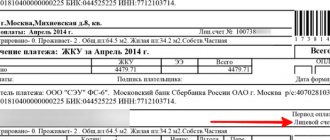Why does debt occur?
By establishing alimony obligations, the interests of a minor child or other disabled family members are protected. The issue of assigning payments can be resolved through the court or under an alimony agreement. Since alimony is a periodic payment, it is collected:
- at the payer’s place of work or service;
- through scholarships, pensions, and other regular payments;
- upon receipt of other income, especially if alimony is awarded in a fixed amount.
When current and regular payments are withheld, there is no seizure of the payer’s property and accounts, no bans or restrictions are introduced on traveling abroad or on driving transport.
Please note that you can send the writ of execution not only to the bailiffs, but also to the bank. However, this rule does not apply for current alimony payments, since a credit institution cannot organize regular deductions or assess the target value of incoming amounts.
A debt for alimony may arise due to illegal actions of the obligated person, in the absence of his guilt, or for valid and objective reasons. Debt on alimony obligations may arise:
- due to the deliberate reluctance of the debtor to pay money for the maintenance of a child or other person;
- through the fault of other persons who are entrusted with the obligation to withhold and transfer funds to the creditor (employer, bailiffs, bank employees, etc.);
- for valid reasons (wage delays, long-term illness, dismissal due to liquidation or staff reduction, etc.).
These circumstances will affect the conditions and procedure for debt collection, and the grounds for applying liability measures to the debtor. The ability to quickly receive delayed payments depends on the actions of the bailiff and the behavior of the creditor himself. For any reason for the formation of a debt, it is advisable to collect it with the support of an experienced lawyer. This will allow you to correctly calculate the amount of claims and choose the best option for influencing the debtor.
The Supreme Court explained how to collect alimony // Briefly about the main thing
On May 13, 2015, the Presidium of the Supreme Court of the Russian Federation approved a review of judicial practice in cases related to the collection of alimony for minor children, as well as for disabled adult children. As usual, a summary analysis of case law has been provided to ensure uniformity, but at the same time contains several fundamental recommendations for courts and litigants. I will dwell on the main (the most significant, in my opinion) conclusions of the Supreme Court from the point of view of a practicing lawyer.
Rules of substantive law:
1. If the information provided by the defendant about his monthly income does not correspond to his actual regular expenses, the court, guided by the principle of maximizing the possible preservation of the child’s previous standard of living, has the right to recover from the defendant alimony in a fixed sum of money. Thus, the fact that the defendant has a permanent job cannot serve as an unconditional basis for refusing to satisfy the request to collect alimony from such a person in a fixed amount.
2. If the defendant’s earnings are below the subsistence level for the working-age population and, taking into account these circumstances, and also based on the fact that the child’s maintenance should not be lower than the level that the child received previously, the judge has the right to determine the amount of alimony both in shares and in flat monetary amount. In addition, when determining the amount of alimony, the cost of living per child in the region must be taken into account.
3. The receipt of high earnings by a person obligated to pay alimony cannot serve as an unconditional basis for satisfying his request to transfer 50% of the alimony amount to an account opened in the name of the child in a bank. In this case, it will be necessary to prove the facts of improper fulfillment by the parent receiving alimony of the obligation to spend it on the maintenance, upbringing and education of the child and maintaining, with this method of execution of the court decision, a level of material support for the child sufficient for his full development (nutrition, education, upbringing, etc.) .d.).
4. Family legislation does not provide for the obligation of parents to support adult able-bodied children, including full-time students in organizations engaged in educational activities.
5. The alimony obligations of grandparents are alimony obligations of the second priority and arise only if it is impossible (that is, for a good reason, independent of the parents, due to the lack of an objective opportunity to support their children) for the grandchildren to receive maintenance from their parents.
6. It is not allowed to determine the amount of alimony for the future.
7. A child’s temporary stay with a parent who is obligated to pay child support for him, for example, during the summer holidays, is not a basis for releasing the debtor from paying arrears of child support.
8. Reducing the amount of the penalty for late payment of alimony collected by the court on the basis of Article 333 of the Civil Code of the Russian Federation is not allowed, since the reduction of the penalty is not provided for by the provisions of Article 115 of the Family Code of the Russian Federation.
9. The Family Code does not provide for compensation for moral damage for non-payment of alimony.
10. When courts apply the provisions of paragraph 2 of Art. 107 of the Family Code of the Russian Federation, the appropriate evidence of the plaintiff’s appeal to the defendant with a demand for payment of alimony is, in particular, registered letters with notification, letters sent by e-mail containing a demand for payment of alimony for a minor child; a court order for the collection of alimony issued and subsequently cancelled; statements to law enforcement agencies to search for the defendant.
11. Provisions of Art. 108 of the Family Code of the Russian Federation on the collection of alimony for minor children before the court makes a decision on the collection of alimony are subject to application in the following cases: suspension of proceedings in connection with the sending of a letter of request; search for the defendant; in connection with the repeated postponement of the trial due to the failure of the defendant to appear and the lack of information about his proper notification; postponing the trial of the case due to the need to require additional evidence; providing the parties with a period of time for reconciliation while simultaneously presenting demands for divorce and collection of child support. Temporary collection of alimony for the maintenance of a minor child until the final consideration of the case on a claim to establish paternity and collect alimony is not allowed.
12. An absolute basis for reducing the amount of alimony in accordance with Art. 119 of the Family Code of the Russian Federation are not: a change in the financial situation of parents as such, the presence of credit obligations, the incurrence of housing costs; the resulting alimony debt; deterioration in health that does not prevent the continuation of the previous job; the presence of other children dependent on the alimony payer, in respect of whom the issue of collecting alimony has not been resolved in court. At the same time, maintaining the previous amount of alimony for one child does not indicate an infringement of the rights of another child to his maintenance or a violation of the rights of the person obliged to pay alimony in the previous amount. It is necessary to establish that such circumstances do not allow the person obligated to pay alimony to maintain the payment of alimony in the same amount.
13. When considering cases of increasing or decreasing the amount of alimony due to a change in the financial or marital status of the parties after the amount of alimony has been established in court, clause 2 of Art. 81 of the Family Code of the Russian Federation is not applicable. In this case, it is necessary to be guided by Art. 119 of the Family Code of the Russian Federation, since it is this norm that defines the grounds for changing or exempting from payment of alimony, the amount of which is established in court. As for paragraph 2 of Art. 81 of the Family Code of the Russian Federation, it regulates the possibility of reducing or increasing the size of shares established by clause 1 of Art. 81 of the Family Code of the Russian Federation, when the court initially determines the amount of alimony collected from minors in court.
14. When applying Art. 114 of the Family Code of the Russian Federation, courts must establish the presence simultaneously of two conditions necessary for exemption from payment of alimony arrears: failure to pay alimony occurred due to the illness of this person or for other valid reasons (compulsory military service by a person obliged to pay alimony, as well as incapacity for work alimony payer, and the lack of, in connection with this, the opportunity to pay alimony during the specified period (service, treatment), the period of exclusion of information about the father from the child’s birth certificate) and his financial and marital status does not make it possible to pay off the resulting alimony debt. The presence of debt incurred while the alimony debtor was serving his sentence in prison is not an unconditional basis for his release, in whole or in part, from paying alimony arrears.
15. Creditors have the right to file claims to invalidate an agreement on the payment of alimony in accordance with Article 170 of the Civil Code of the Russian Federation, when the concluded agreement has signs of an imaginary transaction.
Procedural law:
1. An application for a court order for the collection of alimony in a fixed sum of money for the past period, as well as in the event that the debtor pays alimony by court decision for other persons, for the recovery of alimony from brothers, sisters, grandparents, is not subject to acceptance, the dispute is resolved through litigation.
2. If, after the court decision on the basis of which periodic payments are collected, the circumstances affecting the determination of their amount or their duration have entered into legal force, each party has the right to demand a change in the amount and terms of payments by filing a new claim. Thus, the application of the rules on the identity of claims and the refusal in connection with this to accept the application is not permissible.
3. Cases regarding disputes regarding the collection of alimony for minor children, as well as for disabled adult children, about changing the amount of alimony, about the collection of additional expenses, about the collection of penalties in connection with late payment of alimony, including in an amount exceeding 50,000 rubles, are subject to jurisdiction magistrate.
4. The rules on alternative territorial jurisdiction apply not only in the case of the initial filing of such a claim, but also in the case of collection of alimony in a different amount. At the same time, in the case where a claim for a change in the amount of alimony or for exemption from its payment is filed by a person obligated to pay alimony, the general rule for filing a claim at the place of residence of the defendant is subject to application.
The court has the right to go beyond the stated requirements. For example, in the case when a claim is made for the collection of alimony in proportion to earnings, but there are grounds established by law for the collection of alimony in a fixed sum of money or both in shares and in a fixed sum of money, and such collection will be in the greatest degree in the interests of the child and not violate the interests of the parties, the court has the right to put for discussion between the parties the issue of collecting alimony in the specified manner and make an appropriate decision.
What measures are applied
Failure to comply with the deadlines and procedures for paying child support is a punishable offense. It is possible to avoid liability only if there is a complete absence of guilt in the delay, when alimony is not received without the knowledge of the payer, due to the illegal actions of other persons. If the debtor had the opportunity to pay money, but avoided such an obligation, he faces:
- collection of the entire amount of debt under the writ of execution until full settlement of obligations (even if current alimony will no longer be withheld);
- seizure of accounts and property as part of proceedings in the FSSP;
- forced sale of assets, debiting money from banks, from cards, deduction from wages;
- introduction of interim measures in the form of a ban on foreign travel, deprivation of the right to drive vehicles;
- bringing to administrative and criminal liability if malicious evasion of alimony in favor of a child or disabled parents is confirmed.
Only the most malicious defaulter, who has fundamentally decided to leave his child without a livelihood, will not take seriously the consequences of a criminal record, prohibitions and restrictions, and foreclosure on property. In most cases, these measures will be enough for the debt to begin to be repaid at least in parts.
How is child support debt formed?
According to the requirements of Article 211 of the Civil Procedure Code, a writ of execution containing a demand for alimony payment is subject to immediate execution. This rush is due, first of all, to the fact that the person acting as the recipient needs money for his maintenance. Most often, this party in the case is a minor child who, due to his age, is not able to provide for himself on his own.
According to the norms of Russian legislation, arrears in the payment of alimony arise after one day has passed from the moment a person received a resolution to initiate enforcement proceedings from the bailiff in charge of this case.
If the claimant for some reason did not turn to the bailiffs, the alimony payer must remember that the absence of a valid enforcement proceeding cannot be a basis for refusing to fulfill alimony obligations.
It is worth remembering that, despite the fact that the collector does not have the right to independently hold the defaulter accountable, he has the right to seek help from bailiffs at any time, without limiting himself to any deadlines. Consequently, if from the moment the writ of execution was issued or the parties drew up an alimony agreement, the payer did not fulfill his obligations, the amount of his debt accumulates. even despite the lack of production.
What is the allotted period for payment?
Since child support is a periodic payment, the child must receive it monthly. A different rule applies to debt. Although debtors are obliged to immediately comply with the court decision and the bailiff's orders, the repayment period will be determined according to the following rules:
- if a deferment is granted, the defaulter will receive a certain period of time to resume payments (usually the court gives such a benefit for a period of 2 to 6 months);
- in installments, a large debt will be distributed in equal parts over a long period;
- in enforcement proceedings, the bailiff will give only 5 days for voluntary compensation;
- upon receipt of a writ of execution, the bank is obliged to write off the money immediately;
- if the documents are sent to the debtor’s place of work, up to 70% of the salary will be withheld monthly.
The statute of limitations in alimony legal relations applies only in a limited manner. Current payments can be collected at any time before the child reaches adulthood, as well as within 3 years after reaching the age of 18. You can also obtain a court decision on alimony for the past period when filing a claim. In this case, the statute of limitations will be 3 years.
How to calculate debt
Determining the amount of debt can be a problem, especially if alimony is collected in shares, and the payer does not have a permanent job or source of income. In this case, it is permissible to use indicators of the cost of living or the average salary in Russia. The transfer of the debt amount into a certain form is carried out only through the court, i.e. It is useless to contact the FSSP on this issue.
If the court order or decision initially provided for collection in a fixed amount of money, calculating the debt will not cause difficulties. The calculation can be made by the claimant himself, or at his request the bailiffs will do it. It is extremely difficult for a debtor to challenge the amount of debt, since the cost of living and average wages are approved by regulations of the Russian Federation and regions.
How to collect alimony arrears
It is not recommended to delay debt collection measures, as the amount will increase monthly. Although a large debt will still be retained in enforcement proceedings, you will have to wait a long time for money. If current alimony and debt are withheld simultaneously, the foreclosure queue is applied. Monthly payments will be transferred as a matter of priority, so the debt will be repaid slowly.
The procedure for actions that a claimant can take is provided for by Law No. 229-FZ and the Code of Civil Procedure of the Russian Federation. In court, it is necessary to obtain a writ of execution and submit it to the FSSP. After this, you can force the bailiffs to properly fulfill their legal duties and demand that the evader be brought to justice.
Recipient actions
Faced with a delay, the creditor can use the powers granted to him by the Civil Procedure Code of the Russian Federation, the RF IC and Law No. 229-FZ. It is necessary to act in the following areas:
- require the bailiffs to search for the property and accounts of the debtor, to foreclose on them, and to bring them to justice within the framework of enforcement proceedings;
- request a certificate with the calculation of the debt, file a claim and begin legal collection;
- you can independently submit a writ of execution to the debtor’s bank or at his place of work (if such information is available);
- You can try to find contact with the defaulter, enter into a notarial agreement with him defining the procedure and terms of payment.
Before taking collection action, please consult with our lawyers. Your debt problem can be resolved easier and faster if you have legal support.
Payer
The debtor is directly interested in a speedy settlement with the creditor in order to avoid overpayments of penalties, adverse consequences with the seizure of accounts and property, and the risks of criminal liability. To protect his rights, the alimony has the right:
- ask the court to grant a deferment or installment plan for debt;
- negotiate with the claimant and conclude a notarial agreement, restructure the debt, transfer property for a proportionate amount;
- start paying in installments to eliminate grounds for criminal and administrative liability;
- ask the court to reduce the amount of penalties if the delay is due to valid reasons.
It makes no sense to evade court subpoenas or violate the orders and requirements of the bailiffs. The court decision on debts will be executed in any case until full settlement, so it is advisable not to delay the repayment period.
Information that must be indicated in the writ of execution:
- date, month, year of compilation, place of compilation;
- name of the court and location of the judicial authority;
- operative (final) part of the court decision;
- the date the court decision entered into legal force (or the contents of the writ of execution stating that the decision comes into force on the date of its adoption by the court);
- date of issue of the document to the plaintiff;
- information about the party obligated to pay alimony, containing information about the payer’s place of work and his address.
The writ of execution is signed by the judge and must have a stamp on it.
Copies of the writ of execution are sent to the plaintiff, defendant and the bailiff service.
The plaintiff, in order to ensure the start of the work of the bailiff service to collect alimony from the defendant, can submit a writ of execution to the FSSP independently. Since, if the writ of execution does not reach the addressee, i.e. FSSP, enforcement proceedings will not be initiated and collection of alimony will be impossible.
Filing a claim
A claim for debt collection can be filed at any time, since the statute of limitations only applies to penalties. The statement of claim must be drawn up according to the rules specified in the Code of Civil Procedure of the Russian Federation.
You can download a sample claim from this link. The document must indicate:
- the grounds on which alimony obligations were established (notarial agreement, court order or decision);
- details of enforcement proceedings;
- the reasons for the formation of the debt, if they are known to the plaintiff;
- the amount of debt calculated by the applicant or the bailiffs;
- link to documents confirming the period of delay.
If the debtor made partial payment, these amounts must also be indicated when calculating and in the text of the claim. In addition to the demand for debt collection, you can immediately insist on considering the issue of a penalty.
Jurisdiction for claims in defense of the interests of the child has the right to determine the plaintiff. Therefore, you can go to court at your address or at the place of residence of the defendant. If the alimony debt is collected in favor of a spouse, adult child or other recipient, the documents are submitted to the debtor's address.
Where to submit a writ of execution
According to the legislation of the Russian Federation, the obligation to enforce court decisions is assigned to the bailiff service, which is endowed with certain powers and capabilities to carry out executions of court decisions within the established time frame. The structure of the bodies of this service is quite wide and the plaintiff does not always know where exactly to go to exercise his rights to receive alimony. There is a procedure for contacting FSSP units, which stipulates that:
- the plaintiff must contact the FSSP unit at the place of residence, location of the defendant;
- the plaintiff must contact the FSSP unit at the location of the defendant’s property if the court has decided to impose on the defendant the obligation to perform certain actions (for example: the obligation to transfer the apartment into the ownership of the plaintiff).
Package of documents
The list of forms and forms that will be required for collection may differ for different situations. The standard set of documents includes:
- statement of claim;
- copies of birth certificates or passports for children;
- copies of executive documents on which the debt arose;
- a written calculation of the debt or a corresponding certificate from the bailiff;
- copies of the materials of enforcement proceedings (the period and reasons for the delay are determined from them).
Penalty
Penalties can be calculated at the time of collection in order to obtain a single writ of execution. Subsequently, you can increase the amount of the penalty in court proceedings, or go to court with an independent claim. The calculation of the penalty is carried out according to the norms of the RF IC and Law No. 229-FZ:
- if alimony was collected by the court, penalties are calculated in the amount of 0.1% of the amount of debt for each day of delay;
- if a notarial agreement was drawn up between the parents, the amount of the penalty is determined according to the terms of this document, or according to the refinancing rate of the Central Bank of the Russian Federation.
Judicial practice makes it possible to reduce the amount of penalties taking into account the financial and family situation of the debtor. Typically, this rule is applied if the defaulter proves that the reasons for the formation of the debt are valid, the presence of several dependents, or the objective insufficiency of funds even for their own needs.
Providing property in lieu of payments
By agreement with the debtor, the debtor may transfer his property to pay off the debt. The law does not provide restrictions on the amount of such transactions. To protect the interests of both parties, it is advisable to formalize the agreement through a notary.
How to force bailiffs to collect alimony debt
Bailiffs have many legal powers to find the debtor and his property and force him to pay off his debts. For this purpose, Law No. 229-FZ, orders and instructions of the FSSP are applied. If the bailiffs cannot collect the debt, the debtor can appeal their inaction and provide assistance in obtaining information. Also, FSSP specialists are required to provide upon request any information and documents related to the conduct of proceedings, issue certificates of the amount of debt, and personally receive citizens.
What should bailiffs do to collect a debt?
Having received an application and a writ of execution from the claimant, the bailiff is obliged to initiate proceedings within 3 days. This is formalized by a decree, which the debtor will receive by mail or upon personal appearance at the FSSP. To ensure collection, the bailiff is obliged to:
- give the debtor no more than 5 days to voluntarily repay the debt;
- seize property and accounts, begin sales and write-offs if the defaulter evades fulfillment of obligations;
- introduce security measures (ban on traveling abroad, deprivation of the right to drive a car);
- conduct on-site events at the debtor’s address;
- call for a conversation, warn about measures of criminal and administrative liability.
If information about the debtor and his property is unknown, the bailiff is obliged to introduce a search regime. For 6 months, and if necessary, longer, not only employees of the Ministry of Internal Affairs, but also the police will look for the evader.
If the debtor’s place of work and accounts are known, the bailiff issues a ruling and sends documents for retention. In the future, control will be exercised over the procedure and timing of debt repayment.
How to help a bailiff find a debtor
Already when submitting an application, the claimant can indicate information about the debtor (address, place of work or study, location of property). Similar information can be transmitted upon receipt of it from mutual acquaintances, friends and relatives.
How to write a complaint against a bailiff
If the bailiff is inactive, you can force him to work by filing a complaint. According to Law No. 229-FZ, appeal is allowed in the order of subordination, or through the court. A sample complaint can be downloaded from the link: https://pristav-russia.ru/docs/galoba-na-bezdeistvia-ispolnitela-nachalniku.doc.
If a higher official or court recognizes the bailiff’s inaction as illegal, he will be obliged to take the necessary measures with a deadline.
How to deal with persistent defaulters
As stated above, liability for malicious evasion of alimony payment is provided for in Article 157 of the Criminal Code of the Russian Federation. In order for such liability to be assigned, the fact of the “maliciousness” of the evasion is important. Judicial practice identifies several events that make evasion malicious:
- Changing places of residence in order to evade paying alimony;
- Decrease in actual income received;
- In the absence of work - evasion of employment through the employment center;
- Putting the debtor on the wanted list;
- If the alimony debt exceeds 9 months (based on practice, the term “significant debt” is applied to this period);
- If the bailiffs issued a warning about the possibility of criminal liability, but payments are never made.
We suggest you read: What to do with a promissory note after repaying the debt
If the debtor has been prosecuted, he may be assigned 1 of 4 types of sanctions:
- Up to 1 year of correctional labor;
- 120-180 hours of compulsory work;
- Up to 3 months of arrest;
- Up to 1 year of imprisonment.
And even the very fact of having a criminal record can significantly damage a person’s reputation, as well as limit some of his rights, for example, the right to travel abroad of the Russian Federation (a bailiff can temporarily restrict this right, even without a criminal record, as a method of stimulating the debtor to make payments).
Criminal prosecution under this article is the basis for initiating proceedings for deprivation of parental rights.
Initiating such a procedure is possible provided that the mother submits an application to the court and a certain package of documents, which includes (if there are several children in the family, each child will have their own court case, deprivation of parental rights for several children at once is unacceptable):
- Child's birth certificate;
- A document confirming the divorce;
- A certificate from the educational or preschool institution that the child attends, stating that its employees did not see the child’s father bringing him, picking him up, participating in parent-teacher meetings, and so on;
- Testimony of several witnesses (neighbors, relatives, friends), drawn up and signed, as a rule, by employees of the housing office or HOA, that the father does not take part in the life of the child;
- Certificate about the amount of alimony and the period of arrears (issued by the bailiff).
After submitting all the necessary documents, the court will make a decision on deprivation of parental rights, based on all the attached evidence and testimony.
Some time after the deprivation of rights, the father can restore them, also through the court. This requires sufficiently compelling reasons, supported by substantial evidence.
If the amount of debt is already quite large, and the bailiffs cannot or do not want to help you, you can try contacting a collection agency. Of course, this option should be considered as a last resort, because debt collectors charge quite large commissions for their services. Collectors work either by buying out the debt or helping to collect it for 25-40% of the amount collected.
In this case, the underpaid amount is credited to the debt, and the mother must take the actions applicable to such a situation. They are described above. Including filing an application for a penalty.
If the husband does not work, then it is necessary to submit an application to the bailiff, describe this fact, and he will find out why the husband is not officially employed and is not even registered with the employment service (after all, the amount of unemployment benefits also falls under deductions for alimony). If the husband transferred all the property remaining after the division during the divorce to his parents, then alimony cannot be imposed on this property.
The only option is if he transferred the property after the court’s decision to order alimony payments, you can try to prove this fact as malicious evasion of alimony payments. But this is a rather complicated procedure and for each specific case you need legal advice.
How is alimony penalty calculated?
Knowing the amount of the debt and the period of delay, you can calculate the penalty. You will have to calculate for each individual period, i.e. by month. You will also have to take into account the amount of partial payment if the debtor has begun to repay the debt. According to Art. 115 of the RF IC, the following formula is used for calculation:
Сн = Сд x Кдн x 0.1%, where:
Сн – amount of penalty,
SD – amount of alimony debt,
Kdn – number of days of delay.
The claimant himself is obliged to calculate the amount of penalties, because bailiffs are not given such powers. To avoid errors in calculations, use the help of our lawyers.
If the husband has transferred all property to his parents and does not work
Unscrupulous debtors use any means of avoiding responsibility and fulfilling obligations to the child. To avoid the sale of property and deductions from earnings, they can transfer assets to relatives or friends, hide their place of work, or not be employed at all. If the debtor does not have property, the capabilities of the bailiffs are significantly limited.
In this situation, the following measures can be taken:
- file a claim to challenge transactions on the re-registration of property, claim it from other persons (this can be done if the assets were acquired during the marriage);
- submit an application to the FSSP to initiate an administrative or criminal case;
- require bailiffs to make regular visits to the defaulter’s place of residence in order to promptly identify acquired property;
- seize the debtor's accounts and cards in order to limit his ability to receive money and make payments.
If the debtor has nothing and makes no attempt to pay off his obligations, he can be prosecuted. One of the sanctions under the Criminal Code of the Russian Federation is compulsory work. When such a punishment is executed, the debtor will be accrued earnings (income), which will also be used to repay the alimony debt.
What should bailiffs do to collect a debt?
If the debt to pay alimony exceeds 10,000 rubles, the bailiff has the right to take actions aimed at bringing the defaulter to justice. In particular, he has the right:
- Issue a resolution by which the guilty person will be prohibited from traveling outside the Russian Federation.
- Issue a document on a temporary ban for the defaulter’s use of a special right (most often, deprivation of a driver’s license, if, of course, the debtor has this document).
- Make inquiries to various structures and departments. The purpose of such requests is to establish the property and social status of the defaulter.
- The last way to force the defaulter to repay the debt is to issue a resolution to foreclose on the funds and property of the alimony payer.
Accordingly, if the payer owns property or has a driver’s license, he may lose it after the start of enforcement proceedings. Consequently, it is in the interests of such a debtor to pay off debts in order to avoid arrest and other procedures aimed at infringing on his personal and property rights.
Debt collection from the debtor's heirs
The death of the debtor entails the termination of current alimony payments. However, this rule does not apply to debt. Unpaid amounts can be recovered from the debtor's heirs if they were confirmed at the time of his death. The succession procedure is as follows:
- the statute of limitations for filing claims is no more than 3 years from the date of delay;
- In order for the debt to be transferred by succession, the heir must agree to accept the property and monetary assets of the deceased;
- if none of the relatives of the deceased debtor has entered into inheritance rights, there will be no one to collect the debt from.
Confirmation that the heir has agreed to accept the property and will be forced to pay the obligations is a notarial certificate. If several persons entered into an inheritance at once, the debt will pass to them in proportion to the shares received. The procedure for collection after succession is carried out according to Law No. 229-FZ, i.e. through the court and bailiffs.
Child support arrears include all unpaid monthly amounts. Since the debtor is obliged to pay the debtor in full, forcible deduction will be carried out from his salary, at the expense of property and bank accounts. A penalty may be charged for the entire amount of the debt.








